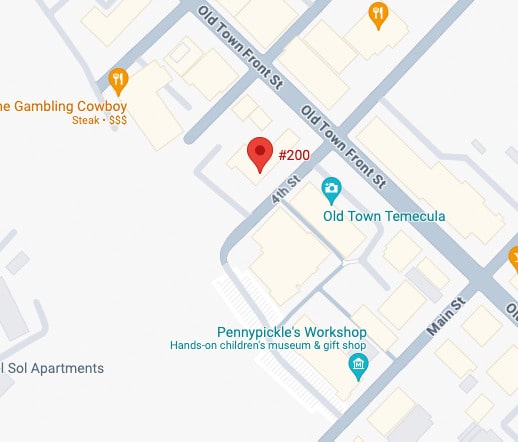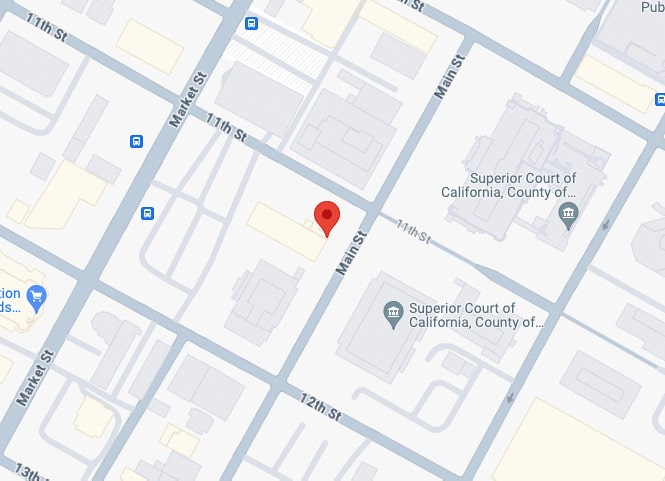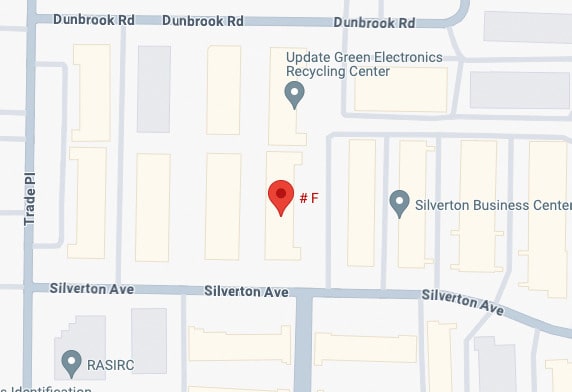Life can be extremely worrying when you or a loved one is arrested for a drug offense in California. Everything tends to escalate quickly, especially if you are a first-time offender. You will expect to be arrested, booked, arraigned, post bail, and go through pretrial hearings and motions. You will also likely go through a trial and be sentenced.
Learning the stages from arrest to trial helps you understand what to do when you face drug charges. You will need a determined bail bonds service to help you post bail for your drug charges, regardless of the nature of your case. Meanwhile, here is what you should expect when you face drug charges in California.
The Arrest
A police officer can arrest you for drug crimes under several circumstances, like personally witnessing you commit a crime, when they have a probate reason to believe you have committed a crime, or when an arrest warrant is issued. They will then take you into custody. However, if the arresting officer believes you have committed a minor drug offense, they will issue a citation and expect you to appear for booking and processing.
The arresting officer should read the Miranda Rights once you are in their custody. Miranda's rights typically include the following:
- Explaining that anything you say will be held against you.
- The right to remain silent.
- The right to a lawyer and appointment of one if you cannot afford.
If you were arrested without a warrant, the enforcement officer could hold you for the period necessary to undertake specific administrative tasks, like fingerprinting and checking if you have any outstanding warrants. This usually lasts for a short period but not more than 48 hours.
Once in police custody, take advantage of your rights by calling a defense lawyer. If you lack one, call a family member or friend who can help you find one. This will help you start preparing your defense as soon as possible.
Booking Process
While in police custody, the arresting officers will book and process you. The booking process involves collecting your personal information and records of the alleged drug crime. The arresting law enforcement officers will also look at your criminal background, take a mugshot, and search and confiscate any personal property you have. They will then place you in a holding cell.
Arraignment Hearing
Arraignment hearings are the first court proceedings on your drug charge. At this stage, the court reads out the formal complaint preferred against you by the prosecutor and explains your rights. Before you enter an initial plea, your defense attorney will contest any pending orders relating to the drug charge, like a restraining or protective order. You have three plea options to consider, which include:
- Pleading guilty.
- Not guilty.
- Nolo contendere.
Please note that arraignment hearings vary based on whether you are charged with a felony or misdemeanor drug charge. If you are charged with a misdemeanor drug crime, your arraignment will happen within ten days after your arrest. However, you will be arraigned within 48 hours if you cannot post bail.
For felony drug charges, like possessing a large amount of dangerous controlled substances such as heroin or cocaine and possessing drugs for sale, the arraignment occurs in a Superior Court within 48 hours of your arrest, excluding holidays and weekends. If you lose your preliminary hearing, a second arraignment will happen in a district court.
If you or your attorney fail to apply for the arraignment, the court will issue a California bench warrant. This authorizes the police to arrest you and bring you to court. If you are charged with a felony, failing to appear will trigger a separate felony charge, while for misdemeanor cases, it will trigger a separate misdemeanor charge.
If you enter a not-guilty plea, the court will determine whether you are eligible for bail by examining the nature of the charges and the possibility of showing up for scheduled court hearings and the trial. When the judge determines you are eligible for release on bond, they will set bail or forgo it entirely and discharge you from custody on personal recognizance. This is common for minor drug charges.
Bonds for serious drug charges, like possession of drugs for trafficking, can go up to $200,000. However, this varies according to the facts of your allegations and the amount allowed by the bail schedule.
The Bail Process
Once the judge has set a bail amount for your release, you must pay the amount to guarantee your freedom. In most cases, defendants cannot pay the entire amount, allowing them to seek help from a bail bonds service. The bondsman will post the required amount for you to guarantee you will attend your court hearing.
You must pay the bondsman 10% of the bail as a premium service fee. The figure is non-refundable, so you should not expect it after the trial. The bond service will then secure the remaining amount they will pay for you as collateral. If you comply with the court proceedings, the bondsman will return the collateral but keep the 10% payment. If you fail to appear, the court will forfeit the bail bond, and the bonds service will use the collateral to reimburse the remaining amount.
Before the bail bonds service posts a bail bond for you, they will draw up a contract using your information. You need a cosigner to sign the bail agreement, assume all the financial responsibility, and assure the court that you will appear on the assigned dates. The cosigner can complete the paperwork via email or fax if they cannot meet the bondsman face-to-face.
Once the cosigner has signed the paperwork, the bondsman will send a representative to the jail to post the bail. Bail bonds can be posted at any time in California.
The judge can set bail conditions as part of reducing your bail. Again, this varies according to the nature of your drug charges. Some of these bail conditions include:
- Compliance with house arrest or electronic monitoring.
- Surrendering your passport and driving license.
- Restriction from exiting the state until your case is done.
Types of Collateral Used to Post Bail in California
You can use different types of collateral to secure a bail bond. Your bail bondsman will accept the item if it covers the value of the bond they will post for you. Some of the acceptable types of collateral include the following:
- Vehicles.
- Precious metals and jewelry.
- Savings accounts.
- Investment accounts.
- Valuable personal items such as artwork.
- Real estate.
- Electronics.
Preliminary Hearing
The court will arrange a preliminary hearing to decide whether the prosecutor has enough evidence to proceed with the drug charges. You can only have a preliminary hearing if you face felony drug charges or were not indicted by the grand jury. The district attorney must prove to the judge that you had probable cause to commit the alleged drug charges. It also works as an avenue to weed out any cases on insufficient rational grounds that the D.A. could have used to prosecute you.
The court will dismiss your case if you win your preliminary hearing. If you lose, your criminal charge will be transferred to the District Court for arraignment within 15 days and set for a jury trial.
In some cases, your attorney can prove that you were overcharged based on the evidence presented by the District Attorney. In that case, the court will dismiss or reduce some charges from a felony to a misdemeanor.
Please note that the judge cannot find you guilty at this stage. You also have the right to have a lawyer cross-examine witnesses and present witnesses. Once these processes are completed, the court will decide if there is enough evidence to hold a trial or dismiss your case. If there is enough evidence to prosecute you, your charges will move to a pretrial.
Pretrial Motions
After the preliminary hearing and before your case proceeds to trial, the opposing sides will appear before a judge for pretrial motions. Pretrial motions are usually arguments that determine which evidence to keep for the trial, which people can testify, and whether your case should be dismissed.
The prosecutor and defense lawyer also use pretrial motions to set boundaries for the trial. This includes determining which evidence and testimony to use, the legal arguments that the defense lawyer and prosecutor can use, and whether any reason exists that prevents the defendant from standing trial.
There are several pretrial motions that you can choose from. However, the most common options include:
-
Motion to Suppress Evidence Under California Penal Code 1538.5
A PEN 1538.5 motion allows the defense attorney to seek a plea for suppressing specific evidence if the apprehending officers are suspected of having violated the defendant's constitutional rights.
For instance, the Fourth Amendment disallows unreasonable searches and seizures. Therefore, your defense attorney can seek suppression of any evidence collected through unlawful search and seizure. In this case, the court usually schedules an evidentiary hearing in which the arresting officers testify to establish the facts surrounding the search and seizure.
If the court accepts the motion to suppress, this leads to dismissing your accusation, even if there is overwhelming evidence of guilt.
-
Motion to Dismiss Under California Penal Code 995
Your defense attorney can file a motion to dismiss one or more charges made against you. You should file this motion if you have adequate evidence that the charges filed against you are illegal and the evidence presented does not provide probable cause for your drug charges. If the court accepts this motion, they will dismiss some or all the charges made against you before the trial.
-
Pitchess Motion
Your defense attorney can file this motion to access the arresting officer's file to determine whether they were biased, used excessive force, or the report was fabricated or embellished. If your defense attorney finds evidence of these misconducts and proves the officer has engaged in the conduct in the past, the prosecutor will most likely dismiss your case. Alternatively, the evidence will help impeach the officer's credibility, reducing your sentence.
-
The Trial
You are entitled to a jury or bench trial. Nevertheless, defense attorneys prefer a trial with a twelve-member jury instead of a judge, exponentially increasing the chances of a fair trial.
The next phase of the trial is jury selection. The judge handling the case and attorney usually screen possible jurors by interviewing them about their life experiences to uncover biases.
Once the jury has been selected, the district and defense attorneys will make their opening remarks about what to expect from the evidence collected. The opening remarks also allow both attorneys to lay out the case’s facts for the court. No argument is permitted while the attorneys are presenting the opening remarks.
Next, the attorney will present their witness testimony and evidence. Your legal representative will call your witnesses for direct examination to submit their story, while the defense attorney will cross-examine your witnesses to impeach their credibility. They will do this to find weaknesses in their testimonies.
Your attorney will then have the opportunity to repair any damage that arises while the defense attorney is cross-examining your witnesses.
The opposing sides will then present final case summaries, arguments, and evidence in a closing statement. This is their last chance to convince the jury to favor you.
Jury Instruction, Deliberation, and Announcing the Verdict
The court will explain the relevant law to the jurors and the aspects they should consider. It will also instruct them about the evidentiary standard the prosecutor should meet to prove the defendant’s guilt. The burden of proof should be "beyond moral certainty" for criminal trials.
Once the jury receives their instructions, they will discuss your drug case privately, as instructed by the court and based on the evidence collected. Besides, they will decide whether the prosecutor meets the evidentiary standard beyond a reasonable doubt before issuing a guilty verdict. Otherwise, they will determine that the defendant is not guilty of the drug charges.
If the jury members cannot unanimously agree on a decision, this becomes a hung jury. The court will order a retrial with another jury.
Sentencing Hearing
If you are found guilty of the charges, each side will argue with the judge assigned to the case and give their thoughts on the appropriate sentence for your case. However, the court will make the final decision on the penalty.
Potential Sentences for Drug Charges in California
Your potential sentences for drug charges in California vary according to the nature of your case. Here is a breakdown of the possible punishments for standard drug charges in California:
Simple Possession of Drugs Penalties
Simple possession of drugs is a violation of California Health and Safety Code Section (HSC) 11350. Defendants found guilty of these charges are eligible for deferred entry of judgment. If the court finds that you are ineligible for the deferred entry of judgment, they will charge you with a misdemeanor. The charge is punishable by a maximum fine of $1,000, probation, and a maximum of one year of custody in county jail.
Sentences for Drug Possession for Sale or Drug Sales
Possessing drugs for sale violates California HSC 11352 and 11351. A sentence under Section 11351 is a felony punishable by imprisonment for 2, 3, or 4 years, while a conviction under Section 11352 is also a felony punishable by imprisonment for 2, 4, or 5 years.
Sentences for the Sale or Possession of Methamphetamine and Drugs
The possession or sale of methamphetamine violates California HSC 11377, 11378, and 11379. The violation of HSC 11377 is a misdemeanor punishable by a maximum of one year in county jail, restitution, fines, or probation.
A violation of Section 11378 or 11379 is a felony and carries similar sentences as Sections 11351 and 11352.
Sentences for Manufacturing Drugs
Manufacturing drugs in California is a violation of HSC 11379.6. This is a felony punishable by 3, 5, or 7 years of imprisonment and a hefty fine. If the drugs involved are in large quantities, the court will impose an additional or consecutive sentence of 3, 5, 10, or 15 years. The court can also impose these consecutive or different sentences if someone suffers great bodily injuries or death due to this offense or if the defendant has previous drug charges.
Find a Knowledgeable Bail Bonds Service Near Me
You should seek help from a bondsman immediately after booking and processing. The pretrial discharge allows you to prepare for your drug charges and present compelling evidence to elevate your chances of dismissal. It also allows you to continue focusing on your everyday life as your attorney prepares for your defense.
Justice Bail Bonds offers top-notch bail bond services in Temecula, Riverside County, for those who face drug or other charges and are seeking bail bond services. We ensure that all our clients obtain the attention they deserve and secure their or their loved ones' release as soon as possible. For more information about our services, please do not hesitate to contact us at 714-541-1155 or visit our offices in one of our Riverside locations.










